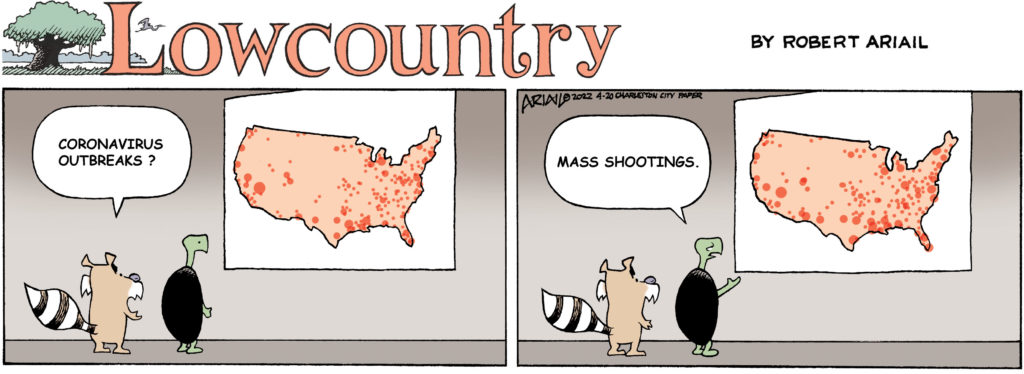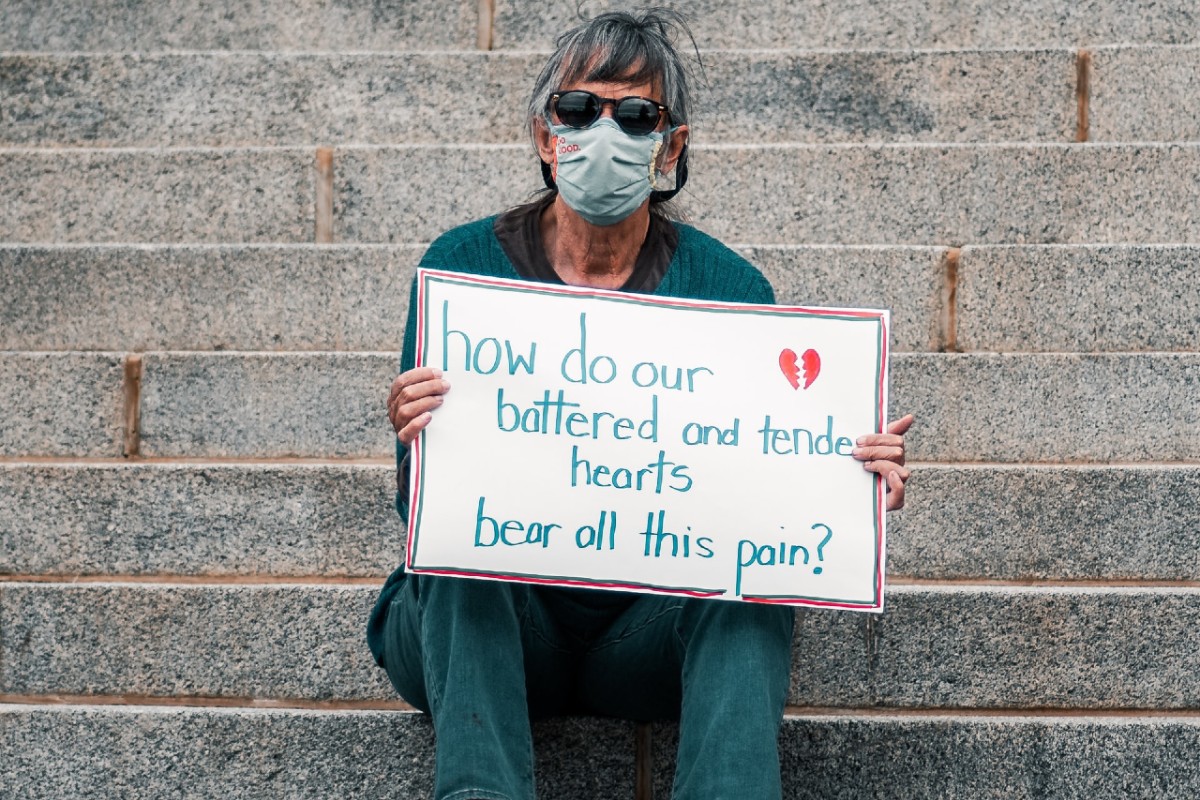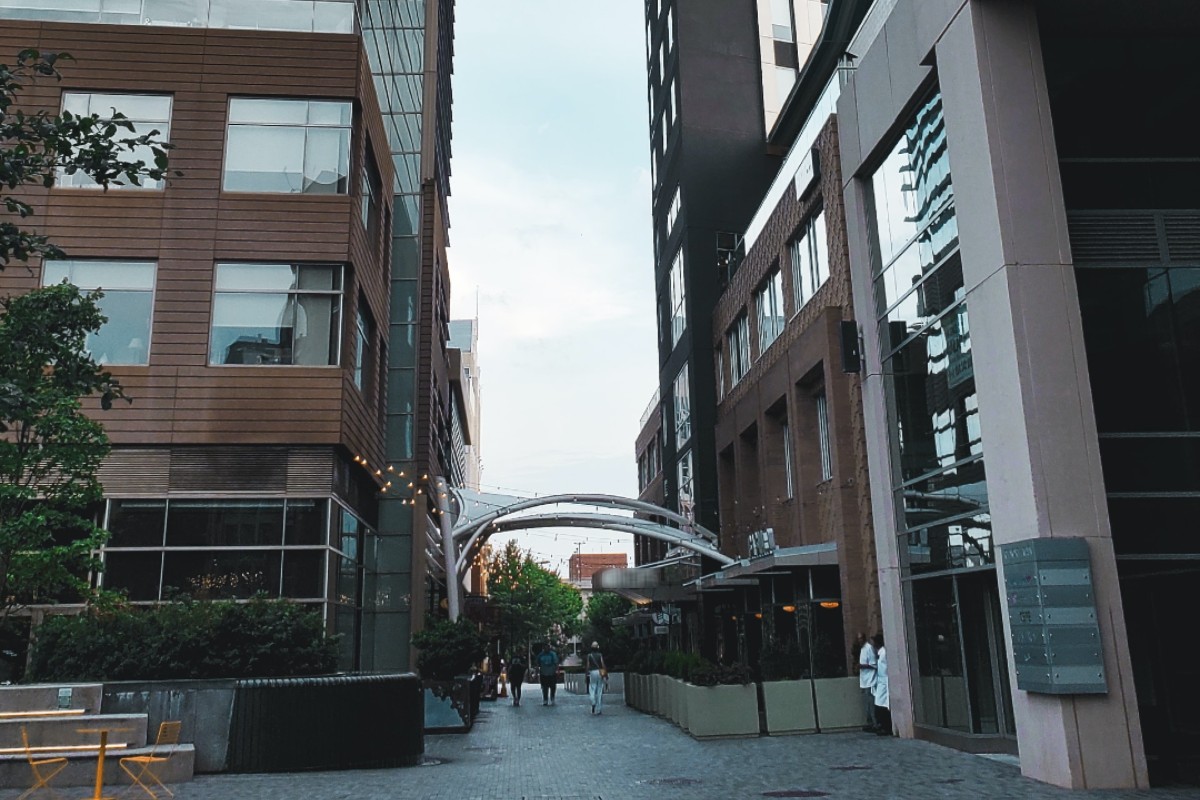STATEHOUSE REPORT | ISSUE 21.16 | APRIL 22, 2022
BIG STORY: Monitoring wastewater for diseases is smart, state officials say
LOWCOUNTRY, Ariail: Not disease outbreaks
COMMENTARY, Brack: Easter weekend shootings should be wakeup call on gun violence
SPOTLIGHT: Palmetto Care Connections
MY TURN, Rex: Fairfield Teacher Village is solution to pressing housing issue
FEEDBACK: Teacher pay brouhaha
MYSTERY PHOTO: Concrete jungle
Monitoring wastewater is smart, state officials say

By Skyler Baldwin | State officials say proactive monitoring of wastewater for diseases like COVID-19 could be a better way to predict how illnesses will impact residents.
According to state epidemiologist Dr. Linda Bell, the state Department of Health and Environmental Control (DHEC) has nine facilities that have reported wastewater data to the agency on a regular basis, including facilities in Georgetown, Richland and Lexington counties. An online tracker for the Center for Disease Control and Prevention CDC), however, has every facility in South Carolina marked as having submitted “no recent data.”
Expanding the monitoring program has proven difficult, Bell said, because DHEC doesn’t mandate participation, and national supply issues have made it difficult for new programs to launch. But local health-care providers say the program is a powerful tool in measuring and predicting outbreaks of not only COVID-19, but many infectious diseases, and is worth the effort.
“Having such data would be invaluable to being able to have an early warning for future outbreaks, including BA.2,” said Dr. Michael Sweat, director of the MUSC’s Center for Global Health.
Charleston monitoring was shut down for some reason
In Charleston, the program that measured levels of COVID-19 in wastewater proved an invaluable tool ahead of and through the Delta surge in 2021, officials said. But the program has quietly gone by the wayside, worrying health providers ahead of an expected surge in infections from the BA.2 variant.
The testing program asked wastewater treatment facilities to send samples to DHEC. The agency then would analyze the sample for genetic traces of COVID-19 and send the data to the federal Centers for Disease Control and Prevention (CDC).
But the facility at Plum Island, which covered the Charleston area, sent its last sample in August 2021, according to the Charleston Water Service Public Information Administrator Mike Saia. Yet the most recent data reported by the CDC from the facility is from March 27, 2022. No one Charleston City Paper spoke with, including Saia, was able to explain the disconnect.
“While wastewater surveillance has the potential to be a valuable tool for early detection of an increase in the spread of the virus, the current geographic areas from which wastewater is being sampled is a limitation in our ability to detect potential increases in the population as a whole,” DHEC told the City Paper in a statement.
The coronavirus is known to be shed in human waste and present in domestic sewage. Because of this, DHEC’s Bureau of Water partnered with the University of South Carolina (UofSC) and the Medical University of South Carolina (MUSC) to conduct a pilot study of COVID levels in wastewater throughout the state.
According to DHEC, the study initially found that the amount of the virus detected in raw sewage can serve as a reliable and early indication of infection in a population, predicting surges and measuring local impacts before clinical cases are generally reported. The tool could be invaluable, according to MUSC’s Sweat.
“The huge value of wastewater testing is in the speed of reporting,” he said. “It gives you an early warning, and it’s unbiased. With individual testing, it’s always been biased. A lot of people don’t get tested, and many more are asymptomatic. Those biases have only gotten worse with the advent of home testing.
“We’re in a mode now where a lot of people are tuned out, but there’s a lot who really do need the warning — they’re immunocompromised, they’re vulnerable, maybe the vaccine didn’t work well for them — so just besides the general population, many in particular would benefit from early warnings.”
Plum Island’s facility was run in partnership with the University of South Carolina, but no former project leaders have responded to multiple requests by City Paper for comment. Saia said the Charleston Water Service was told by a representative from DHEC that their samples “were no longer needed.” By today, DHEC had not responded to requests for comment on Saia’s assertion.
South Carolina’s program behind, but has potential
Other states are far ahead of South Carolina with wastewater monitoring. Colorado, for example, began disease surveillance in its wastewater five years ago, so transitioning the program to COVID was simple. Its program showed clear spikes ahead of and during the initial Alpha outbreak, and waves of Delta and Omicron. The program has generated national coverage in publications like The New York Times and National Public Radio.
Epidemiologist Bell said while South Carolina’s program has potential to be an early warning system, it’s still in the formative stages for a number of reasons.
“We have a relatively small number of facilities participating, there are some issues on the national level with the testing supplies to run these programs, and there are also additional things being worked out to match what we detect in wastewater with circulation in the community,” she said.
“We don’t have any control over these facilities, but in terms of the method itself, there’s potential here and at the national level to detect pathogens in sewage. We’re looking at building the capacity to have more widespread surveillance with this project. But that relies on sampling reform. Certain lab equipment has to be set up, and the testing material has to be made more readily available.”
This method of COVID surveillance would be supplementary to others. But without a more robust and widespread program, the primary surveillance tool remains reported cases and hospitalizations.
“This is just one component of our surveillance system, and until we get the necessary capacity, we will still have to rely on diagnostic samples reported to the health department,” Bell said.
But that comes with its own complications. As at-home testing has grown more popular, accurate case counts have been more difficult to get, since positive test results from over-the-counter test kits often go unreported.
When it comes to getting the program to where it needs to be, Bell said DHEC’s hands are tied.
“We rely on these treatment facilities to participate,” she said. “We are not actively enrolling them or mandating participation. We don’t have control over the supplies … this isn’t the same as required reporting from health-care providers who get a COVID sample from an individual.”
- Skyler Baldwin is a reporter with the Charleston City Paper, where this story first appeared in a slightly different form. Have a comment? Send to: feedback@statehousereport.com.
Not disease outbreaks

This couldn’t be more timely! Cartoonist Robert Ariail often interprets things a little differently, but always has an interesting take on what’s going on in South Carolina. Love the cartoon? Hate it? What do you think: feedback@statehousereport.com.
Weekend shootings should be wakeup call on guns

By Andy Brack | It’s an absolute miracle that none of the 18 people shot in two South Carolina Easter Weekend mass shootings died.
 Unfortunately on March 31, a 12-year-old Greenville boy wasn’t as lucky after being killed in a school shooting. Another 12-year-old is suspected. In recent days, North Charleston police found a gun and more than 30 rounds of ammunition in a student’s bag at his high school.
Unfortunately on March 31, a 12-year-old Greenville boy wasn’t as lucky after being killed in a school shooting. Another 12-year-old is suspected. In recent days, North Charleston police found a gun and more than 30 rounds of ammunition in a student’s bag at his high school.
If there ever were signs from heaven that the Palmetto State has a gun problem and needs to deal with it, these are the newest red flags. Our leaders need to deal with it instead of continuing to kick the can down the road.
“The shootings this weekend were raw jolt, yet at the same time not surprising,” said Meghan Alexander, founder of Arm-in-Arm , a bipartisan South Carolina advocacy group filled with gun owners who want to reduce gun violence. “There are many daily firearm incidents that do not make news.”
The group got started in 2015, shortly after the massacre of nine worshippers at Emanuel AME Church in Charleston, including the church’s pastor, state Sen. Clementa Pinckney.
Since that deadly shooting, we’ve waited seven sessions for the Republican-led General Assembly to close a loophole to honor their slain colleague by making it harder for nuts to get guns. But they have dilly-dallied, failing year after year to take deadly gun violence seriously.
Rather than pass background checks, tougher laws against domestic violence or a law against hate crimes (we’re only one of two states without this), the General Assembly actually passed a measure that allows open carry of guns. Rather than curb the enthusiasm for guns, lawmakers boost their presence in public and throw gas on the fire.
“Over these last seven years since the mass shooting at Mother Emanuel, we’ve had ample opportunity to make South Carolina safer,” said Alexander, a Mount Pleasant resident. “But our legislature has not only NOT prioritized this, but has taken several steps to loosen existing gun safety measures. Any gun safety precautions are thwarted by our legislature.”
![]() According to data compiled by Arm-in-Arm, gun violence is getting worse:
According to data compiled by Arm-in-Arm, gun violence is getting worse:
- Rising death rate. Firearm homicide deaths in South Carolina went up 136 percent in 22 years – from 223 deaths in 1999 to 528 in 2020.
- Ranked at top. Another list we don’t want to be on the top of: South Carolina has ranked fourth to eighth highest nationally in the rate of firearm homicide deaths since 2001.
- Doubled rate per capita. South Carolina jumped from 5.5 firearm homicides per 100,000 people in 1999 to 10.9 per 100,000 people in 2000.
Bottom line: We’ve got a problem that’s getting worse and no one in the General Assembly is doing anything about it.
So what could state lawmakers do?
- Expand background checks for people who want to buy guns. As one comedian has joked, every gun owner knows someone that they don’t want to have a gun. Having a strong background check is a mechanism consistently supported by a majority of people to have a process to keep guns out of the hands of people who shouldn’t have them. Sure, some will buy guns on the black market, but not having a process is avoiding any solution.
- Close the Charleston loophole to make it tougher for bad guys to get guns.
- Join 48 other states in passing a hate crimes law.
- Make tougher penalties for anyone who violates existing gun laws.
- Boost financial support for hospital and community programs that seek to reduce gun violence.
In our permissive gun culture, guns aren’t going away. But the state legislature should take steps now to reduce violence by common-sense, popular actions that can keep more people safe. To do less is to insult responsible gun owners as well as those who want them to go away.
Andy Brack is publisher of the Charleston City Paper and editor and publisher of Statehouse Report. Have a comment? Send to: feedback@statehousereport.com.
Palmetto Care Connections
 Statehouse Report is brought to you at no cost thanks to the generous support of underwriters, such as Palmetto Care Connections.
Statehouse Report is brought to you at no cost thanks to the generous support of underwriters, such as Palmetto Care Connections.
Established in 2010, Palmetto Care Connections (PCC) is a non-profit organization that brings technology, broadband and telehealth solutions to health care providers in rural and underserved areas in South Carolina. PCC hosts the Annual Telehealth Summit of South Carolina presenting state and national best practices and trends, as well as providing networking connections for health care, technology and broadband professionals.
The leader of the South Carolina broadband consortium, PCC assists health care providers in receiving broadband savings through the Federal Communication Commission’s Healthcare Connect Fund program. Since 2013, PCC has helped providers save more than $25 million in broadband costs.
PCC co-chairs the South Carolina Telehealth Alliance, along with the Medical University of South Carolina, serving as an advocate for rural providers and partnering with organizations to improve health care access and delivery for all South Carolinians.
- Learn more about Palmetto Care Connections.
Fairfield Teacher Village is solution for housing

By Dr. Sue Rex, special to Statehouse Report
WINNSBORO, S.C. | Teachers are leaving their profession in increasing numbers. At a time when students, their parents, and communities need experienced and talented teachers as perhaps never before, the profession is falling short of attracting the quantity and quality of recruits needed to ensure our nation’s future.

Enrollments in teacher preparation programs in colleges and universities continue to decrease. This diminishing supply of “new blood” in the profession’s pipeline is increasingly alarming because more experienced teachers are now retiring early, or simply leaving the profession for other careers.
The reasons given for not pursuing a career in teaching and the reasons given for abandoning that career are both familiar and new. They include: poor pay and working conditions; lack of administrative support; student behavior; and insufficient professional autonomy. But, more recent reasons also include: the risks and the demands created by the pandemic; inability to afford to live near their work; price of fuel; and inadequate professional and emotional support.
So how can a district, or state, or a nation for that matter begin to address such a complex and varied set of circumstances? Thanks to the informed generosity of Dominion Energy and the visionary leadership of educators and community volunteers, Fairfield County is pursuing a unique approach to addressing a number of the causes of the shortage.

The Fairfield Teacher Village will be the first of its kind in South Carolina – and one of the very first in America – when it opens next summer. It is coming at a time when the U.S. is needing to aggressively and creatively address so many of our problems. This one, however, having the quantity and quality of teachers to adequately prepare our children for our collective future, must be solved for the others to be resolved. The need is urgent. Thankfully, Fairfield is an example of educators, corporate and business leaders, and community volunteers showing that they-and all of us-are up to the challenge.
The concept being pursued is designed to give this underserved rural school district not only an “incentive” package to competitively attract the quantity and quality of teachers it needs; but, even more importantly, to create a “community” of early career and experienced teachers who, together, can address more effectively many of the other concerns that are causing teachers to leave the profession early.
The Fairfield County School District Education Foundation is a nonprofit corporation established to support the mission of the Fairfield County School District. The Foundation’s signature initiative, originally envisioned by Superintendent Dr. J.R. Green, is to creatively address the state’s growing crisis of recruiting and retaining outstanding teachers to rural districts, beginning with Fairfield County.
Over 70% of Fairfield County teachers do not presently live in our county, which means, among other things, that they do not spend their money in our county. Our foundation hopes by providing affordable, attractive housing for interested teachers they will choose to not only live in Winnsboro but to shop and support local businesses, engage in the community outside of the school day and participate in unparalleled opportunities for teachers to collaborate.
The Fairfield County School District Board of Trustees has donated 22 acres of land for the project. The Foundation received from a county legal settlement with Dominion Energy an earmarked $2.2 million grant to complete phase 1 of the project. This money will be used to complete the infrastructure for 30 homesites and the initial construction of eight to 10 homes. We hope the first group of teachers will be able to become residents during the summer of 2023. In the meantime, additional funding is being pursued, which will allow phase 2 to begin with the building of20 additional homes and a clubhouse.
When fully implemented, the “Fairfield Teacher Village” will be a newly built single family rental community dedicated to housing Fairfield County classroom teachers. Retaining Fairfield classroom teachers will be a priority; but depending on housing availability, new Fairfield County teachers will also qualify as residents of the Village. Not inconsequentially, the addition of this community of college educated full-time residents within the town limits of Winnsboro will also have a welcomed and significant positive economic impact.
Dr. Sue Rex is chair of the Fairfield County Education Foundation. Have a comment? Send to: feedback@statehousereport.com
Teacher pay brouhaha
To the editor:
![]() What is so amazing about the teacher pay policy discussion is that it has well defined ruts. We have heard it all umpteen times. We can almost recite the arguments and positions from memory.
What is so amazing about the teacher pay policy discussion is that it has well defined ruts. We have heard it all umpteen times. We can almost recite the arguments and positions from memory.
In the over and over, through the years of discourses, you would expect that when the legislative leaders have a big pot of money, when they have few ideas to spend wisely (instead of an accelerated highway program already overfunded), it would have been early business settled out of the initial allocation with the focus shifted to the other matters to throw money at.
Instead we have injury, ambiguity, misunderstanding, discussion of word meaning and false promises revealed as the legislative curtain is about to close.
The paraphrase Greeley, “Teachers move on to a state that will treat you better because S.C. never will.”
– Fred Palm, Edisto Island, S.C.
- Have any other comment? Send your letters or comments to: feedback@statehousereport.com. Make sure to provide your contact details (name, hometown and phone number for verification. Letters are limited to 150 words.
Concrete jungle

Here’s an urban scene certainly not found in Allendale or Fairfield counties. Where is it? Be specific. Send your guess to feedback@statehousereport.com — and remember to include your name, home city and contact information.
 Wow – only four readers correctly got last week’s mystery photo, which showed blue lights at the stage of the newly reopened Music Farm in Charleston. Hats off to George Graf of Palmyra, Va.; Frank Bouknight of Summerville; Lane Goodwin of Columbia; and Charles Davis, who poignantly observed, “Pays to follow you on Facebook.”
Wow – only four readers correctly got last week’s mystery photo, which showed blue lights at the stage of the newly reopened Music Farm in Charleston. Hats off to George Graf of Palmyra, Va.; Frank Bouknight of Summerville; Lane Goodwin of Columbia; and Charles Davis, who poignantly observed, “Pays to follow you on Facebook.”
>> Send us a mystery picture. If you have a photo that you believe will stump readers, send it along (but make sure to tell us what it is because it may stump us too!) Send to: feedback@statehousereport.com and mark it as a photo submission. Thanks.
- ORDER NOW: Copies are in Lowcountry-area bookstores now, but if you can’t swing by, you can order a copy online today.
- Now available as an e-book!
ABOUT STATEHOUSE REPORT
Statehouse Report, founded in 2001 as a weekly legislative forecast that informs readers about what is going to happen in South Carolina politics and policy, is provided to you at no charge every Friday.
- Editor and publisher: Andy Brack, 843.670.3996
Donate today
We’re proud to offer Statehouse Report for free. For more than a dozen years, we’ve been the go-to place for insightful independent policy and political news and views in the Palmetto State. And we love it as much as you do.
But now, we can use your help. If you’ve been thinking of contributing to Statehouse Report over the years, now would be a great time to contribute as we deal with the crisis. In advance, thank you.
Buy the book
Now you can get a copy of editor and publisher Andy Brack’s We Can Do Better, South Carolina! ($14.99) as a paperback or as a Kindle book ($7.99). . The book of essays offers incisive commentaries by editor and publisher Andy Brack on the American South, the common good, vexing problems for the Palmetto State and interesting South Carolina leaders.
More
- Mailing address: Send inquiries by mail to: P.O. Box 21942, Charleston, SC 29413
- Subscriptions are free: Click to subscribe.
- We hope you’ll keep receiving the great news and information from Statehouse Report, but if you need to unsubscribe, go to the bottom of the weekly email issue and follow the instructions.
- Read our sister publication: Charleston City Paper (every Wednesday in print; Every day online)
- © 2022, Statehouse Report, a publication of City Paper Publishing, LLC. All rights reserved.


